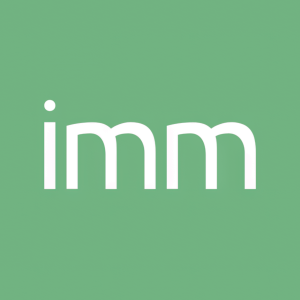Immutep Signs Exclusive License Agreement with Cardiff University for Next Generation Anti-LAG-3 Molecules for Cancer
Rhea-AI Summary
Immutep has signed an exclusive License Agreement with Cardiff University to develop and commercialize anti-LAG-3 small molecules for cancer treatment. Under this collaboration, several promising compounds have been identified that block LAG-3, a key immune checkpoint. These small molecules could offer a more convenient and cost-effective oral treatment for cancer patients compared to existing monoclonal and bi-specific antibodies. The agreement builds on a relationship that began in 2019 and includes upfront and milestone payments, as well as royalties on future sales.
Positive
- Exclusive License Agreement with Cardiff University enhances Immutep's LAG-3 therapeutic portfolio.
- Development of promising anti-LAG-3 small molecules identified through advanced screening and synthetic chemistry.
- Potential for oral cancer treatment offers convenience and lower cost compared to existing therapies.
- Joint patent application filed to protect new intellectual property.
- Collaborative relationship with Cardiff University since 2019.
Negative
- Only low single-digit royalties are expected from future sales.
- Initial upfront payment to Cardiff University is £25,000, which is relatively modest.
News Market Reaction 1 Alert
On the day this news was published, IMMP declined 1.13%, reflecting a mild negative market reaction.
Data tracked by StockTitan Argus on the day of publication.
Media Release
SYDNEY, AUSTRALIA, June 25, 2024 (GLOBE NEWSWIRE) -- Immutep Limited (ASX: IMM; NASDAQ: IMMP) ("Immutep” or “the Company”), a clinical-stage biotechnology company developing novel LAG-3 immunotherapies for cancer and autoimmune diseases, today announces a License Agreement with Cardiff University granting the Company exclusive rights to develop and commercialise anti-LAG-3 small molecules.
A number of promising compounds that block LAG-3, an immune checkpoint known to reduce the immune system’s response to fight cancer, have been identified under Immutep’s collaboration with the world-leading scientists at Cardiff University. Led by Professor Andrew Godkin of Cardiff University, Professor Andrea Brancale (now of the University of Chemistry and Technology, Prague), and Dr Frédéric Triebel, Immutep CSO, the compounds were identified by chemical library screening, molecular modelling (virtual screening) and synthetic chemistry.
Professor Andrew Godkin of Cardiff University said: “Our collaboration with Immutep has been exciting and fruitful, resulting in a number of small molecules with the potential to fight cancer by blocking the interaction between LAG-3 on T cells and MHC Class II on antigen-presenting cells. Small molecules represent the next generation of anti-LAG-3 therapies and hold tremendous promise, as they can be given to cancer patients as a convenient oral pill.”
To date, over a dozen companies have initiated clinical trials investigating antagonist or “blocking” LAG-3 antibodies including Bristol Myers Squibb’s relatlimab, which was approved by the FDA in 2022 as part of a fixed dose combination with nivolumab for the treatment of metastatic melanoma. This new combination, known as Opdualag®, achieved commercial sales of US
Dr. Frédéric Triebel, Immutep CSO, said: “With our first-in-class MHC Class II agonist, eftilagimod alfa, entering late-stage clinical trials in oncology and IMP761, the world’s first LAG-3 agonist antibody targeting the root cause of autoimmune diseases scheduled to enter the clinic by mid-year, the team at Immutep continues to build on its pioneering leadership position in the LAG-3 therapeutic landscape with this novel program. This License Agreement harnesses many years of collaborative work with the expert team at Cardiff University and enables us to advance the most promising preclinical compounds towards the next stage of development.”
A joint patent application has been filed by Immutep S.A.S. and University College Cardiff Consultants Limited (a Cardiff University affiliate) to protect the new intellectual property. The License Agreement builds on Immutep’s collaboration with Cardiff University which commenced in 2019. University College Cardiff Consultants Limited will receive an upfront payment of
About Cardiff University
Cardiff University is recognised in independent government assessments as one of Britain’s leading teaching and research universities and is a member of the Russell Group of the UK’s most research intensive universities. The 2021 Research Excellence Framework found
About Immutep
Immutep is a clinical-stage biotechnology company developing novel LAG-3 immunotherapy for cancer and autoimmune disease. We are pioneers in the understanding and advancement of therapeutics related to Lymphocyte Activation Gene-3 (LAG-3), and our diversified product portfolio harnesses its unique ability to stimulate or suppress the immune response. Immutep is dedicated to leveraging its expertise to bring innovative treatment options to market for patients in need and to maximise value for shareholders. For more information, please visit www.immutep.com.
Australian Investors/Media:
Catherine Strong, Morrow Sodali
+61 (0)406 759 268; c.strong@morrowsodali.com
U.S. Investors/Media:
Chris Basta, VP, Investor Relations and Corporate Communications
+1 (631) 318 4000; chris.basta@immutep.com









